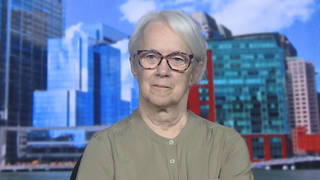
Topics
Since the attacks on the World Trade Center and the Pentagon on September 11th, the Bush Administration has relied increasingly on a rhetoric of “national security” and “public safety” to justify restrictions on civil liberties.
So far the Bush strategy has centered on the immigration and criminal justice, including the detention of over a thousand people and the creation of a military tribunal system.
Now the Administration will expand this kind of approach to another frontier: public health. While most states already possess emergency health statutes, the President is pushing states to adopt a law that will vastly expand their powers. The act would grant authorities new powers to take over hospitals, seize drug supplies, quarantine people exposed to infectious pathogens, and draft doctors to treat them. It would also give them permission to force patients to be vaccinated and order police to restrain residents from leaving contaminated areas.
The proposed legislation is known as the Model State Emergency Health Powers Act. The CDC commissioned a Georgetown Law professor, Lawrence Gostin, to write the act at the height of the anthrax scare, and then rushed it to state legislatures as soon as it was complete. According to the Washington Post, some variation of the measure is expected to be considered in virtually every state in the coming year.
But public health experts, civil libertarians, AIDS activists, and others have begun to raise serious questions about the CDC template.
Guests:
- Lawrence O. Gostin, author of the proposed legislation, Professor of Law, Georgetown University and Director, Center for Law and the Public’s Health.
- Keith Richman, M.D., Republican California state Assemblyman who is working to adapt the CDC proposal into legislation for his own state (38th District).
- George Annas, Chair, Health Law Department at the Boston University School of Public Health.
- Tanya Ehrmann, Director of Public Policy, AIDS Action.
Related links:











Media Options